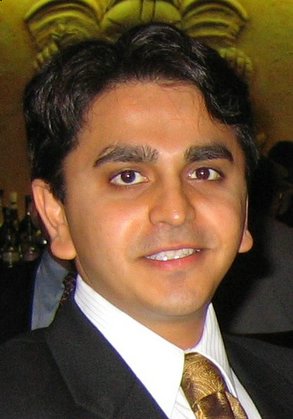The Zen Of Measurement

Oct 1998: A beautiful late fall evening in the city of Waltham, Massachusetts, I sat in a corner seat in one of my MBA classes, listening to my marketing professor talk about a business case. I wondered why he picked that particular one. Halfway into the class, he opened up the class for a debate. I was the first student who raised my hand and asked “Why are you discussing this case and why is it important for us to know the outcome”. He was taken aback and retorted “You don’t enjoy it young man? Is something wrong? I had sent you the agenda last night.” I never forgot those words.
I have had a difficult time accepting things without being able to objectively justify its true value. The objective piece for me could be direct, indirect or even perceptive but I need to know why I am doing what I am doing. Most people I deal with everyday are hungry to know stuff – random stuff. Whether it applies to their daily life or not could be irrelevant. Social engineering mediums powered by always-on tools today feed into this behavior more than ever. Updates from friends, family, emails, news, etc, our inherent nature to yearn for contact demands to know everything that is happening around us at all times and our material wants – all contribute to the chaos.
Seeing through the value chain of your function | Most of what I do or say does not add any present or future value to me or anyone/anything. That’s a strong statement to make myself look like a miserable unproductive individual. Yes, I served a function but that was it. I never questioned the longevity or the usefulness of that function neither did I question the existence of that function in the first place. Most of us are not even capable of altering or ignoring these functions but continue serving them as a mere means to an end. But we all serve them, we expect them and we strive for them. Your job, your family role, your social role, your material collections, etc all take a different meaning if you ask yourself a simple question “Why am I doing this?” Unless you know where the buck stops, it is almost impossible to assess why you would do something.
I have personally experienced a greater sense of accomplishment if I knew with what purpose I was being presented with something or asked to do something. In that, I take these situations as an opportunity to teach others. 9 out of 10 times, upon asking simple questions, the individual requesting something of me does not need what he/she originally asked me to do or whatever was asked before is completely changed. In these cases, the act of not doing was achieving simplicity, often the hardest thing to do. One need not have a very analytical mind or be a subject matter expert to achieve such simplicity.
Know The Unknown | What is not measurable is not important. E.g. In my research, Air Purifiers are not measurable. Not even scientifically. But they still constitute $1B+ market capitalization in the
What To Measure | Questioning alone does not resolve anything. It’s a good start but following on is critical. Most often I will be asked why I am asking that question. I would explain and that would be the end of the conversation. I personally do not think that is the end, rather it is the beginning of the conversation. Know the path that warrants your question. I want to know what metrics to put in place to answer the question. The measurability, verifiability, accuracy or timeliness of such metrics become secondary but knowing what to measure becomes the key question in the end that dictates any further analysis. If I don’t know how to know something, I cannot know it. I need to play a role of a father to be called father. I need to play the role of a developer to know where and how the code breaks. I need to think like a CFO to maintain my budgets. I become the CEO if I propose a new product line. All these roles assume different capabilities, thus perceive different metrics.
Mind you – I personally do not believe trying to measure something objectively does not equate to justifying something. Both these are complete opposite and serve a different meaning in my school of thought. I can question but I cannot justify. Justification is very personal and holds true only to the person trying to invoke his/her action.
1. Why am I doing it?
2. What will be out the outcome of my action?
3. Can I measure this outcome? And with what accuracy?
4. What value would I have created from my action?
5. Is any of the above sustainable?

1 Comments:
Good Job!!
Post a Comment
<< Home